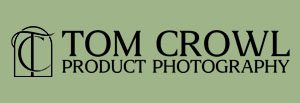The visual appeal of your website plays a pivotal role in attracting and retaining visitors.
Regular updating of your website with fresh, engaging images is crucial.
But how do you source these images creatively and ensure they resonate with your audience?
This article explores innovative ways for image sourcing and the use of A/B testing to identify the most effective visuals for your website.
Creative Ways to Source New Images
1. User-Generated Content
Approach: Encourage your customers to share photos of your products in use. This can be facilitated through social media contests or hashtags.
Benefits: User-generated content is authentic and relatable, often resonating well with other customers. It also fosters community engagement.
2. Collaborations with Artists and Photographers
Approach: Partner with artists, photographers, or influencers to create unique images. This can include product shoots, artistic interpretations, or lifestyle images.
Benefits: Collaborations bring fresh perspectives and styles to your imagery, enhancing the visual diversity of your website.

3. Stock Photo Websites with a Twist
Approach: Use stock photos but customize them. Look for images that can be easily edited to align with your brand’s aesthetic.
Benefits: This approach offers the convenience of stock photos while allowing for creativity and brand alignment.
4. Exploring Local Scenery
Approach: Utilize local landscapes or cityscapes as backdrops for your product photos.
Benefits: Local scenery can add a unique, authentic feel to your images, especially if your brand has a strong local presence.
Using A/B Testing to Determine the Most Engaging Images
1. Setting Up A/B Tests
Strategy: Create two versions of your webpage, each with a different set of images. Use tools like Optimizely for this purpose.
Execution: Ensure that the only variable changing between the two versions is the imagery. Keep copy, layout, and other elements consistent.
2. Analyzing User Behavior
Strategy: Monitor key metrics such as click-through rates, time spent on the page, and conversion rates.
Execution: Use analytics tools to track how users interact with each version. Look for statistically significant differences in behavior.

3. Gathering Qualitative Feedback
Strategy: Supplement quantitative data with qualitative feedback. Ask users directly about their preferences through surveys or feedback forms.
Execution: Use tools like SurveyMonkey or direct feedback forms on your website to gather user opinions.
4. Iterative Testing
Strategy: Use the results from initial tests to refine your images further. Conduct multiple rounds of testing if necessary.
Execution: Based on the data, make adjustments to your images and test again. This iterative process can help you hone in on the most effective visuals.
Conclusion
Sourcing images for your website doesn’t have to be a mundane task.
By exploring creative avenues and leveraging the power of A/B testing, you can ensure that your website’s visuals are not only fresh and appealing but also effective in engaging and converting visitors.
Remember, in the world of online marketing, visuals are not just decoration; they are powerful communication tools.
Discover How Professional Photography Can Elevate Your Brand
Get a Custom Quote Tailored to Your Specific Needs

Take a minute to fill out the form below. Doing so will help me understand your product photography needs. Once I receive your information, I'll reach out to you personally to discuss the project in more detail and create a customized quote for you.
You may also text me at: 410-596-4127 or E-mail me at: tom@tomcrowl.com

